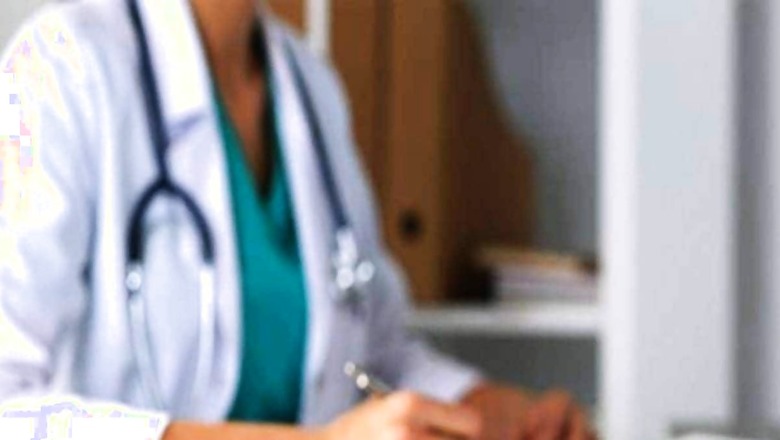
views
The National Medical Commission (NMC) on Monday issued guidelines on professional responsibilities of medical students, asking them not to indiscriminately post on social media regarding patients and patient-related information.
It also underlined the need for them to learn the local language so as to effectively communicate with patients and participate in community events.
Medical students are expected to dress modestly and appropriately in all their professional endeavours, it stated.
During their clinical training, medical students should politely introduce themselves to patients as students before eliciting medical history and examining patients while understanding that patients are not a means to an end, according to the guidelines.
The guidelines advocate medical students taking care of themselves and leading a healthy lifestyle and particularly avoiding alcohol, tobacco and other substances of abuse. Students are expected to seek treatment and counselling in case of substance abuse, it said.
Under the ”responsibilities related to personal growth”, the guidelines stated that students must be sensitive to a patient’s needs and must maintain the confidentiality of medical information and at the same time be responsible to inform the treating team about the same to ensure proper management. ”They must be aware of their limitations and should avoid giving advice regarding treatment, or doing counselling without due instruction from their teachers,” according to the guidelines issued by Dr Yogender Malik, member of the NMC’s Ethics and Medical Registration Board (EMRB).
The guidelines urged students to get involved in research during their MBBS course under the guidance of their teachers. They should be familiar with the ICMR guidelines that govern research.
The guidelines urged medical students not to indiscriminately post on social media regarding patients and patient-related information.
It underlined that students must be aware of the ever-expanding scope of social media with its usefulness as well as possible professional hazards associated with its indiscriminate use.
Students are expected to be honest and practise integrity during all examinations. Cheating in any form is a form of corruption that not only undermines the purpose of the examinations but also runs contradictory to what is expected of a medical student.
The guidelines highlighted that whenever possible, students should participate in health camps/ health awareness campaigns as learning at the level of communities is also an essential component of medical education.
During the community interactions, students encounter diversity in education, living standards, social support systems, access to basic amenities, health access and environmental conditions, etc. Such knowledge and experience is essential if students are to understand the social context when patients come to hospital and to be able to participate in health promotion and disease prevention activities in the community.
Under the ”responsibilities towards society and national goals”, the guidelines stated that medicine is a social and moral endeavour and so medical students are expected to dress modestly and appropriately in all their professional endeavours.
It encouraged medical students to organise regular environmental audits of the campus to identity the problem areas concerning the environment and initiate suitable programmes such as tree plantation, reduction of use of single use plastic, and judicious use of water.
Further, in keeping with the role of a citizen-doctor, students are encouraged to keep abreast of new health laws being discussed in Parliament or in a state.
According to the guidelines, students are expected to learn the local language so as to effectively communicate with patients during their studies, participate in community events related to health education, health promotion and prevention and assist in health services in situations like natural calamities, disasters, health emergencies etc. through proper channels and under supervision. Sense of social service and nationalism should be integral part of medical education.
As far as support framework to ensure optimal functioning and growth of medical students is concerned, medical colleges should have atmosphere conducive for the medical students to achieve optimum personal and professional growth, it stated.
Medical colleges must ensure that adequate and appropriately trained faculties are available for the education of students according to the prescribed NMC standards.
They are required to ensure that students have adequate clinical exposure and are required to conduct all examinations and certifications as prescribed by the NMC with integrity and honesty.
”Cheating must be dealt with strict action. Colleges must not inflate internal assessment marks and students should expect a fair and impartial examination process. Medical colleges must ensure that ragging is banned and that strictest action is taken in the event of breaches,” the guidelines stated.
In order to create awareness against tobacco, alcohol and substance abuse, institutes should run or support well-designed programmes like anti-addiction campaigns on campus and involve students in educating others through such drives at the community level.
Read all the Latest Education News here

















Comments
0 comment